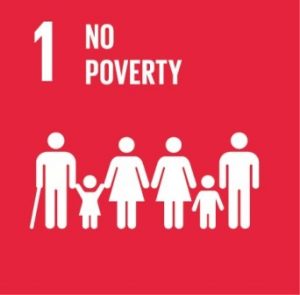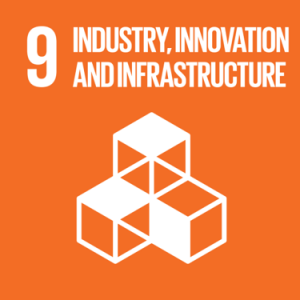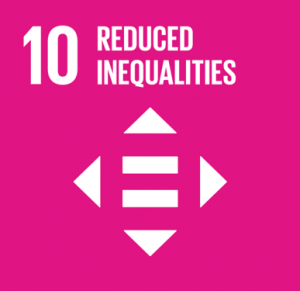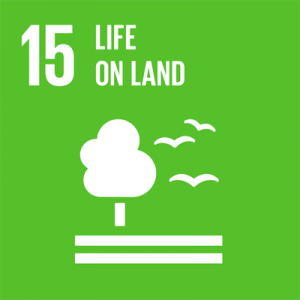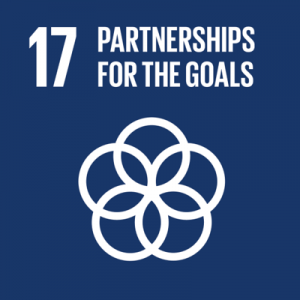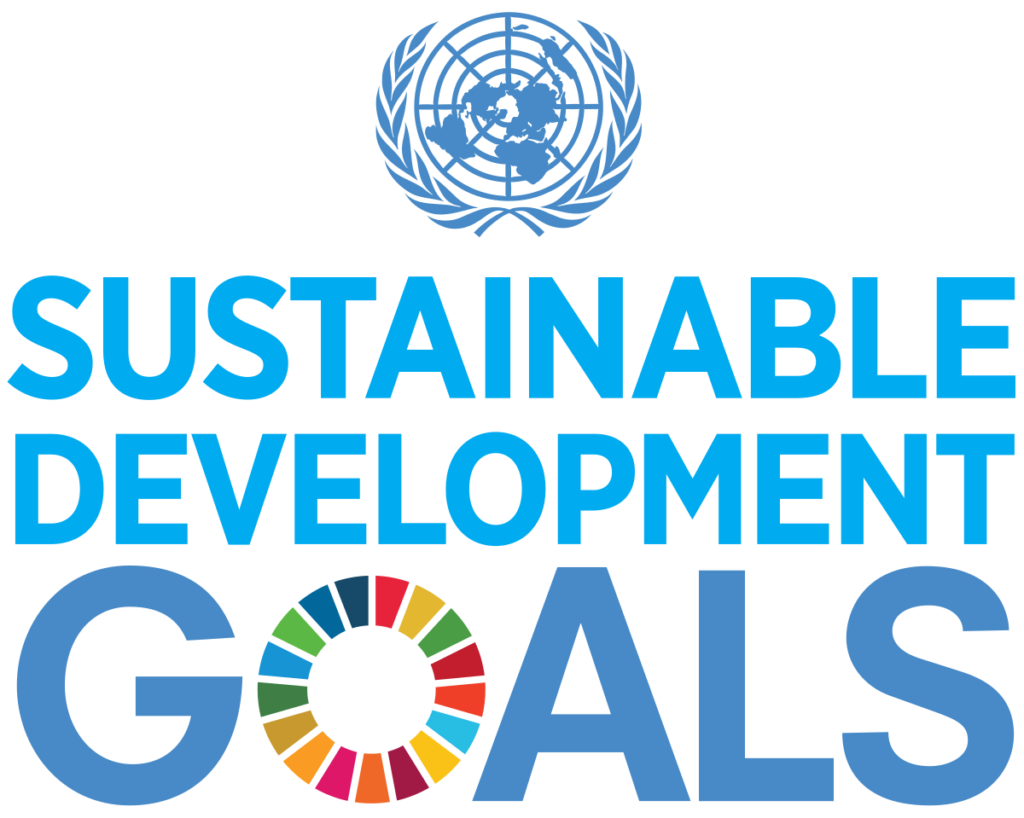SUSTAINABLE DEVELOPMENT GOALS

SDG 2 : ZERO HUNGER
“The ability to feed the world is a key element of sustainable development. If done right, agriculture, forestry and fisheries can provide nutritious food for all. At the same time it can ensure rural development with people at the centre of the process, supporting the incomes of those who rely on agriculture. Universities need to be able to demonstrate how they are contributing to end hunger, achieve food security and improved nutrition and promote sustainable agriculture.”
(THE Impact Rankings)
Campus Food Waste
Food loss and waste generation in Indonesia in 2000 – 2019 has reached 115-184 kg/capita/year. Based on the food supply chain, the highest contribution of food loss and waste occurs in the consumption stage. IPB University is committed to reducing food waste from the campus population. Members of the university can help reduce those numbers by ordering food mindfully for any event organized on campus. For University catered events, it is important to ensure accurate numbers. If there is a change in numbers, then informing the catering staff of this can help reduce the amount of food waste. The University also has a list of approved charities that collect leftover food from events and meetings.
Tackling Food Waste on Our Campus
To minimize food waste, IPB University also mandates all units within the campus to manage their waste and measure their food waste. This mandate is stated in the Circular Letter on Waste Management at IPB University. This mandate indicates IPB University’s commitment to reducing food waste in every possible way. Based on our Rector’s Regulation (Peraturan Rektor) No. 29/IT3/OT/2020, the university aims to do this by applying the “Reduce, Re-use, and Recycle waste hierarchy”. IPB University also operates a zero landfill policy for general waste, food waste, and bulky waste.
Since 2019, our university has measured the amount of food waste around the campus by using a method that refers to SNI 19-3964-1994. The procedure is as follows:
- Food waste that was collected from each station was weighed with digital scales with an accuracy of 1 gram
- Food waste was sorted according to food waste components: rice, vegetables, and dishes
- Each component of food waste was weighed
- The weighted food waste was recorded on the tally sheet

Food waste in our university is collected by the Directorate of General Affairs and taken to our Waste Station in Cikabayan to be bulked up before being transferred to Galuga Waste Station. Our policy related to waste management can be read here:
Instructions for the Implementation of Waste Management (Household Waste) at IPB
Six Ways You Can Decrease Food Waste:
- In the dining center, take only what you can eat. Come back for seconds if you are still hungry after finishing your first plate.
- Make sure you plan ahead and buy the right amount of food so you don’t waste it.
- Keep your refrigerator at home organized so you can see and use what you have.
- Blend it up. When produce gets over-ripe, use it in a smoothie.
- Spice up your water. Use peels of citrus fruits, apples, or cucumber to flavor your water.
- Add wilting veggies to soups or stews.
Student Hunger
IPB Food Support is dedicated to reducing food insecurity among students.
- GEMARIKAN – The Gemarikan program distributed 200 food packages of processed fish products, namely Si Petek in the form of crispy fish and potato anchovies, as well as canned fish products to students, THL, and FPIK IPB Education Personnel.
- IPB Go Maksi (Free Lunch program for undergraduate students): Go Maksi is a free lunch program for needy students. Every week, Agrianita provides 350 Go Maksi coupons for ten dormitories. This coupon can be used at IPB’s canteen, such as a Green corner, Red corner, Purple corner, Blue corner, and Mandala canteen. This program collaborates with any partners that have empathy for others to improve students’ welfare.
- Dapur Agrianita (Agrianita’s Kitchen). Every month Agrianita IPB provides a free meal for more than a thousand students in IPB. The mechanism of implementation will be in the rotation of faculties. Ideally, Agrianita’s kitchen targets to provide at least 200 portions of healthy and cheap food every day. Dapur Agrianita holds a healthy eating event at least once a month.
- Milk and Fruits Assistance. This program was organized by the Directorate of Student Affairs at IPB University to provide free milk and fruits for undergraduate students.
IPB provides intervention to prevent hunger among students and staff through the food bank. This intervention is implemented under the coordination of the Directorate of Student Affairs and Career Development. IPB Food bank is held every Friday from 13.00-14.00. Food packs are available for students and staff. There are varieties of food that are provided, among others, bread, biscuits, cookies, noodles, etc. The amount of food packs distributed is 75 pax per day. The Directorate of Student Affairs and Career Development continues to raise donations from the campus population to provide more food and increase the number of foodbank beneficiaries.

All canteens at IPB University provide sustainable, healthy, and affordable food choices.
IPB also produces fresh and organic vegetables that are marketed at an affordable price for the campus population.
Almost all food provided in IPB canteen, sold with amicable and affordable price. Healthy food can be seen from menu options that balance nutrition and food safety.
To ensure food safety, IPB has conducted training for canteen tenants and IPB kitchen management, doing sampling and analysis to prove their good practices by them. IPB has monitored food prices in all food outlets and regulated that prices that should be affordable to students.
National Hunger
IPB University is strongly committed to improving access to food security and sustainable agriculture and aquaculture knowledge, skills, or technology for local farmers and food producers. There are several platforms and programs for local farmers and food producers, namely: DigiTani (Digital Agricultural Extension), Sekolah Peternakan Rakyat (School of Community’s Livestock), One Village One CEO, Klinik Tanaman, and training for ornamental fish producers.
- DigiTani (Digital Agricultural Extension) is an application/online extension service IPB University provides for farmers and food producers. It involves many experts willing to share their knowledge on sustainable agriculture. The application provides information and innovations in sustainable agriculture and facilitates farmers to communicate online with experts. IPB DigiTani adapts to the era and the needs of farmers nowadays.
- Sekolah Peternakan Rakyat (School of Community’s Livestock). The Institute for Research and Community Service (LPPM) IPB University visited Tadulako University (Untad) to invite LPPM Untad to develop SPR and community service activities in Central Sulawesi jointly.
- IPB Establishes Petani Millenial by CEO School: One Village One CEO Program. IPB accompanied young farmers at Desa Sejahtera to develop their village. This program relates to IPB’s vision for 2019-2045, “to be a technosocial-entrepreneurial university”. CEO School is focused on developing millennials’ motivation to build a business unit in the village to be a bigger unit or to be a Badan Usaha Milik Desa (BUMDes)’s companion.
- Plant Clinic. Like humans and animals, plants also need clinics to treat illness/health problems. The Plant Clinic, under the auspices of the Department of Plant Protection, Faculty of Agriculture, IPB, was established as an agricultural, institutional innovation, which is a contribution from IPB as a complaint center to address plant health problems. Handled by six experts on the disease, pests, and Integrated Pest Management as core staff and fully supported by students and plant protection experts at the Faculty of Agriculture, IPB. Equipped with its operational laboratory and mobile car, as well as 10 research laboratories of the Department of Plant Protection and other laboratories at IPB. Since its establishment, several achievements deserve to be shared by the Plant Clinic of IPB with the community and the Indonesian agricultural world. Up to now, the clinic has handled 2240 cases of plant health problems from various professional circles from all over Indonesia for the last 10 years, Disseminate technology through action research to tackle major pests/diseases in rice (6 districts in Java), chili, shallots, potatoes, cabbage, oranges, and sengon, and Contribute to providing solutions to pest/disease explosions that are a national problem. For example, in response to the 2010-2011 brown planthopper explosion that threatened rice production, a National Workshop on Brown Planthopper Control was conducted, and the Implementation of a Broad Scale Brown Planthopper Control Model (supported by I-MHERE B2.C.IPB).
- Training for Farmers
- Increasing Women’s Motivation and Empowerment, IPB University Vocational School Lecturer, gives training on utilizing the home yard to produce food needs. This training was given to housewives in Sinarsari Village, Dramaga Bogor.
- Under the Dosen Mengabdi, a team of lecturers trains farmers to improve their skills in increasing beef cattle breeding. This program is conducted in Desa Pangkal Jaya, Kecamatan Nanggung, Bogor.
- Lecturer of IPB Vocational School Teaches Local Farmers in Sukabumi about Chili Cultivation.
- IPB Students Help local farmers in Wunut Village manage the irrigation system.
- IPB University Accompanied Ornamental Plant Farmers to Export their Products. More than 120 farmers attend this event. Nowadays, almost 90 percent of the total land is planted with melon, pineapple, banana, and other ornamental plants. Sukamantri village is used for all farmers to educate themselves and test new variants of ornamental plants.
1. Farmer’s Day
IPB provides events for local farmers and food producers to connect and transfer knowledge. One of example is the Student Executive Board of the Faculty of Human Ecology (BEM Fema) IPB University celebrates Farmer’s Day with students and farmers. This activity invited students and farmers to voice the results of studies on agricultural systems in the archipelago.
2. IPB Innovation Village – Subang
The Faculty of Agriculture (Faperta) of IPB University launched the Subang Innovation Village. This activity is a collaboration between IPB University and the Subang Regency Government, IPB Subang Alumni Association, CV Sari Bumi Nusantara, and farmers in Subang Regency. This activity was held in the Kiarasari Village Hall, Compreng District, Subang Regency, West Java
3. Business Matching
IPB University organizes a business matching event to facilitate collaboration between tenants and investors. 28 startups are IPB’s tenants participating in the event, and some are doing business in agriculture and food production. This event is conducted annually as part of IPB University’s commitment to growing new startups by transferring knowledge and technical and financial assistance.
4. Food Festival
After two years off due to the Covid-19 pandemic, this year, Agrianita IPB managed to organize Agrianita’s Craft and Food Festival, which presents many vendors who sell various products, such as local food and beverage, handicraft, etc. This event facilitates the vendors to promote their products to the public to expand their market.
1. Facilities provided by STP IPB University for tenants
IPB provides access, including facilities and consultation on technology and business management, for tenants of various types of businesses, including farmers and food producers. The facilities provided by IPB include production rooms, offices, production facilities at the Pilot Plant (evaporator, extractor, spray dryer, vacuum frying, freeze drying, packaging for retail products, etc.), product development, and laboratory services (proximate analysis and pre-clinical trials).
STP IPB plays a role in facilitating the development of technology and innovation to produce startups and strengthening the industrial sector by providing science and technology, physical infrastructure, and management support. The focus areas developed by STP IPB are tropical agriculture, food, bioscience, and marine.
2. Access to Modern Laboratorium Facilities for Analytical Services at IPB University
IPB has analytical facilities for the public to improve product quality from farmers or local businesses. Facilities at IPB for food analytical or certification:
- SEAFAST Center IPB
- Food Microbiology Analysis Laboratory
- Food Biotechnology Laboratory
- Food Quality and Safety Laboratory: Chemistry
- Food Quality and Safety Laboratory: Microbiology
- Food Sensory Evaluation
- Animal Assay Laboratory
- Testing Laboratory of the Department of Agricultural Industrial Technology
- Analysis for wastewater and AMDK
- Analysis of the quality of crystal sugar
- Analysis of material and agroindustry product
- Testing and Certification Services Laboratory of IPBLaboratorium Jasa Pengujian dan Sertifikasi IPB
- Certified by LP-156-IDN for Analytical test,
- LK-336-IDN for Calibration test,
- LSPr-030-IDN,
- LSHACCP-009-IDN,
- LSSMKP-009-IDN for product certification,
- HACCP,
- and Food security.
3. DigiTani
IPB launched a platform to educate farmers, Digital, to provide access to knowledge to farmers. Farmers can access various content provided in the IPB DigiTani application and communicate online with experts. IPB keeps improving this application to adapt to the era and the needs of farmers nowadays. IPB has the vision to be the center of information and innovation in sustainable agriculture.
IPB University has several market channels to market its products, and farmers, food producers, and home industries are assisted by the university. IPB prioritizes purchasing products from locals to fulfill the need of the university as well as to expand the market. To maintain the collaboration with these smallholders and SMEs, IPB keeps assisting them through technical assistance and knowledge transfer.
IPB Shop
IPB official stores are available online and offline for the campus population and the public around Bogor, Jakarta, and neighboring districts. These stores sell various products, including vegetables, meats, processed food, herbal, etc. These products are purchased from local farmers, food producers, and home industries, assisted by IPB University.
Sustainable Food Purchase From Local Farmers For IPB University Canteen
IPB University always uses local products for the canteen and meeting programs at the campus. Agricultural products marketed by the Agribusiness and Technology Park (ATP come from products of local farmers as well as ATP self-produce. More than 30 local farmers around Bogor and Cianjur collaborated with ATP IPB to produce organic foods with high quality. ATP IPB prioritizes purchasing local farmers’ products as part of IPB’s commitment to community engagement and development. Collaborating with farmers enables ATP IPB to guarantee the availability and quality of food products for sustainable marketing.
Ethical sources of food and suppliers
IPB University supports the ethical sourcing of food and supplies. This commitment is seen in policies established and enacted for use within the university ground, the immediate surrounding area, and the national scale. In 2020, IPB issued a policy highlighted the ethical sourcing of food and supplies as stated in Rector’s Decree No. 133/IT3/LK/2020 concerning IPB’s Commitment in Achieving SDGs, specifically on page 2, point J “IPB ensure ethical sourcing of food and supplies”.
SDG 2 IN NUMBER
7,985
Number of Graduates
7,985
Number of graduates from a relevant agriculture course
100
Percentage of graduates from agriculture
68mt
Total Food Waste
34,474
Number of Campus Population
RELATED NEWS
It seems we can't find what you're looking for.

